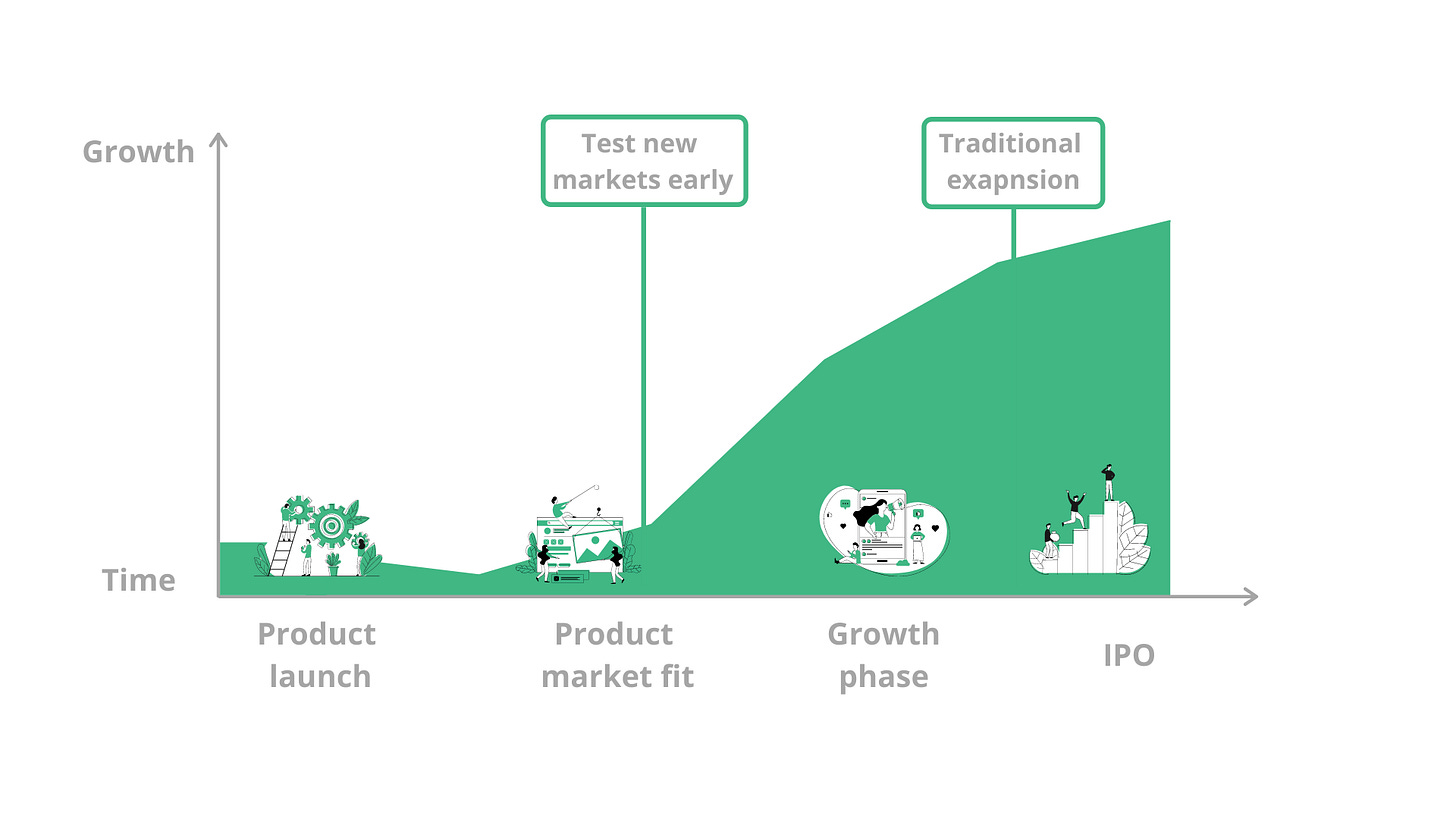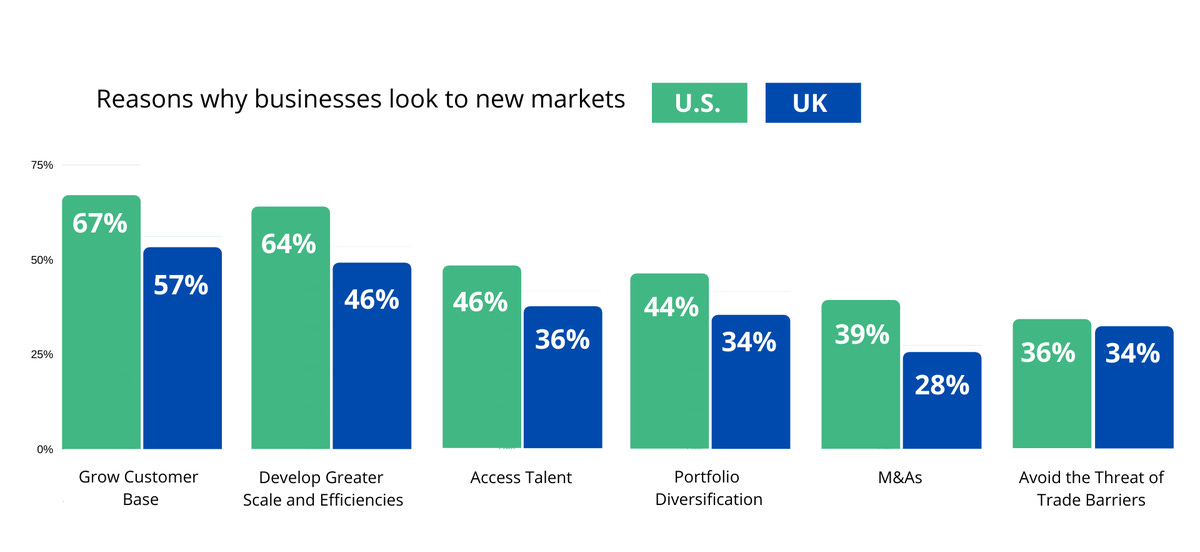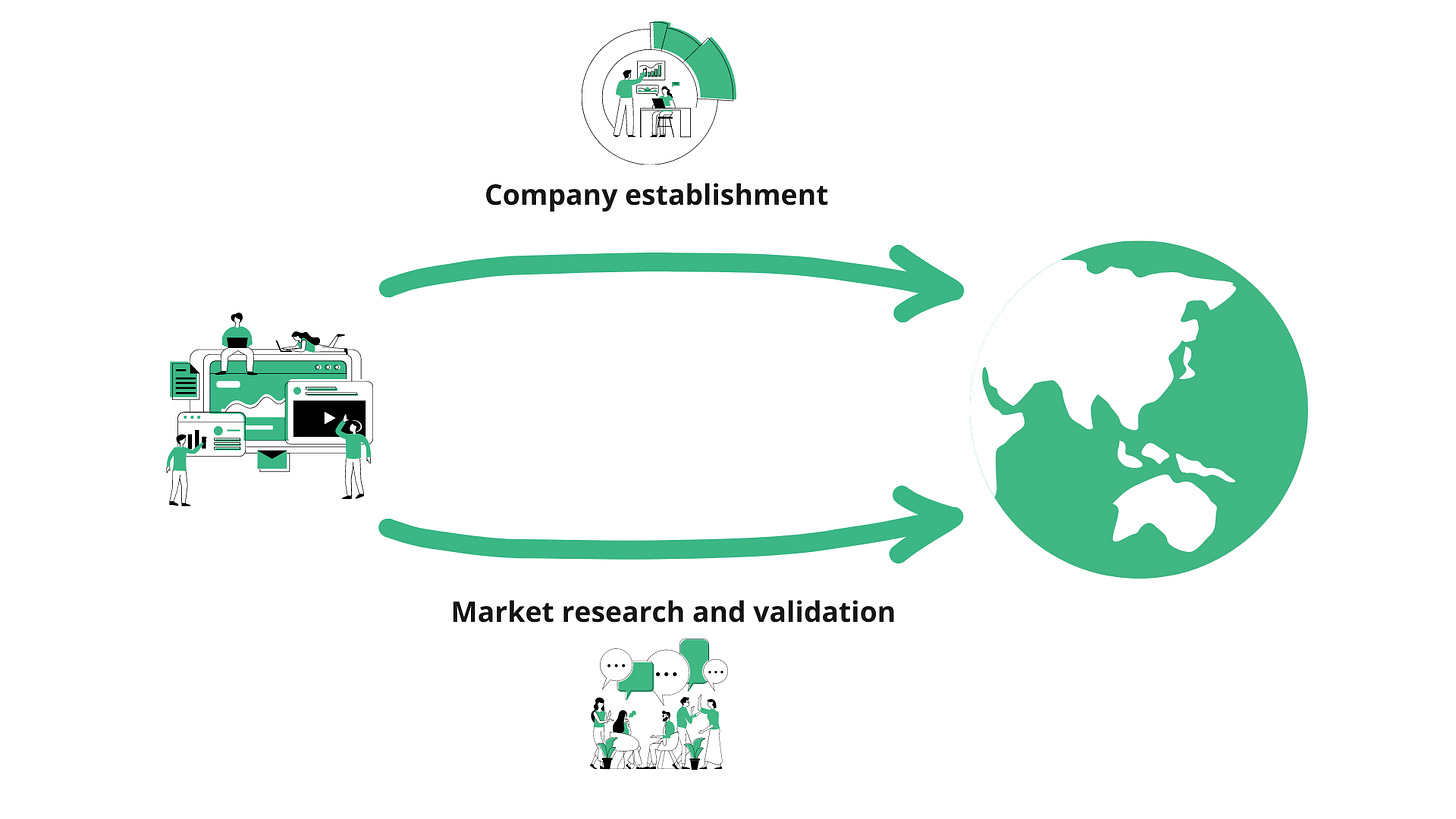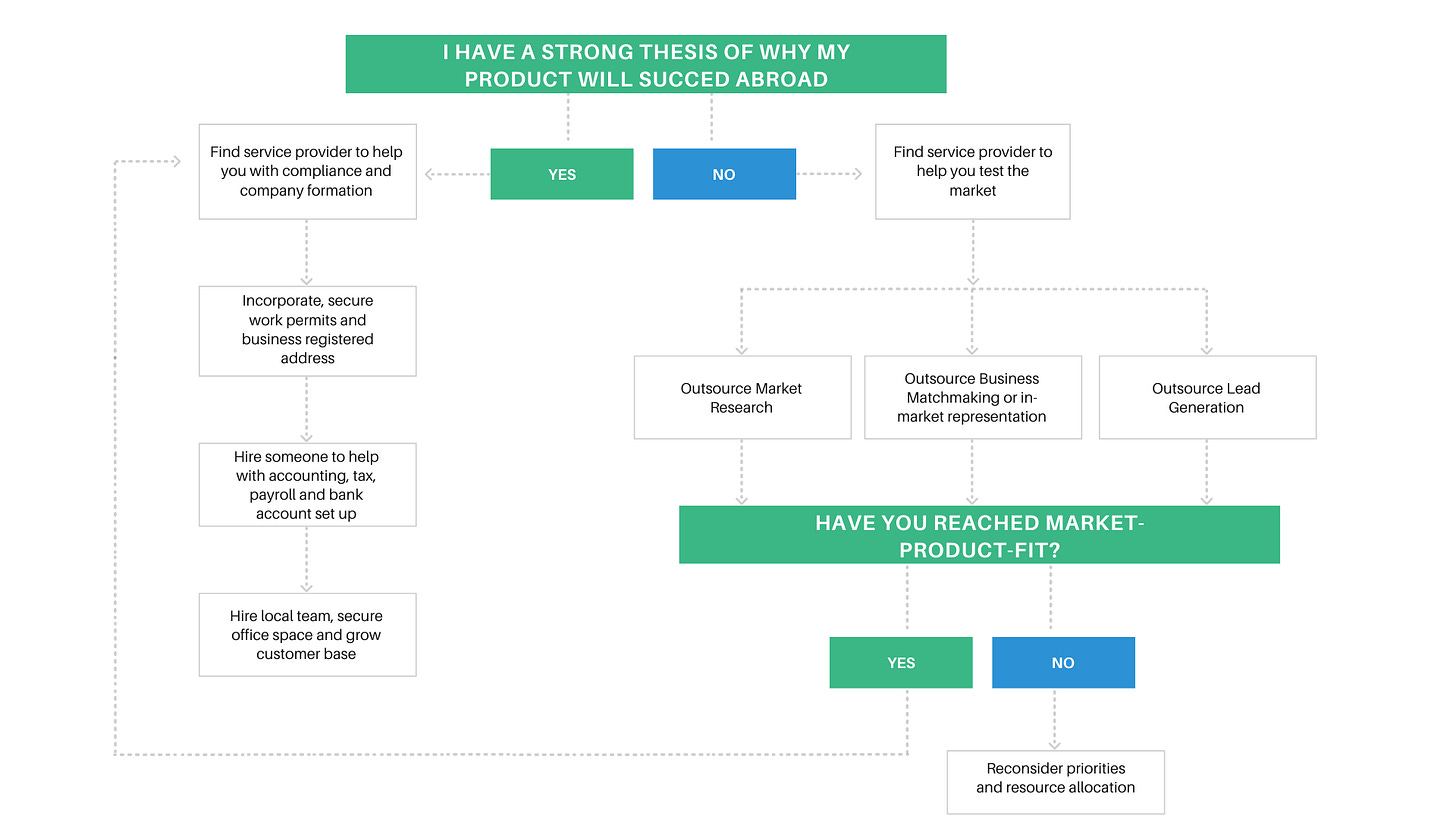Newsletter #36: A startup's guide to APAC expansion 🚀 🌏 💰
10 minutes reading time. Thoughts on startups, growth, and technology 🚀
Welcome to another edition of the Struggle.
The Struggle is a weekly newsletter where I share my thoughts and learnings from running a fast-growing startup in Southeast Asia.
In a continuation of my previous newsletter, this month I am speaking at several events where I will talk on the topic of what it takes to be successful in fast-growth markets across Southeast Asia.
Over the past few years, I have been advising startup founders on how they can successfully expand to the Asia Pacific (APAC).
Additionally, I have experimented with our expansion across different geographies in the region.
While I do not consider myself an expert, I believe that our unique business model connecting the largest network of qualified service providers focused on market-entry services with startups expanding to APAC, has taught me many valuable lessons, and today’s post is a reflection of all that.
Grow at home VS Expand from day one
There are two schools of thought on this matter:
Traditional expansion - launch your product, reach product-market-fit, scale the business in your home market, and only then start expanding.
Test new markets early - with the rise of the internet, startups can reach international markets almost immediately.

As Michael Fertik, founder of Reputation Defender told the Harvard Business Review:
"I think it’s critical for companies — including and especially young businesses — to go international earlier, rather than waiting five, seven or 10 years. That was a decision we made for our company, Reputation.com, and it was the right move. It opened some good revenue streams for us and, almost more importantly, helped surface rich cultural intel about our products and what offerings would appeal the most in which markets. As a result, we were able to intelligently redirect resources to capitalize on the countries with the most initial promise for us."
Perhaps a third approach is Steven Carpenter’s rule of thumb, where he advises startups to expand when 25% or more of your business is coming from international markets.
In my experience, startups across Southeast Asia are in favor of the second approach and tend to test new markets almost immediately after launching their product.
While startups from more developed and distant markets like European countries, Australia, or North America would rather wait for five, seven, or ten years before expanding overseas.
I think both approaches have merits, but it always depends on the unique circumstances of your business. After all, it might be suicidal to start expanding your product if you are struggling to fundraise and are running out of cash.
Having said that, technology startups have a considerable advantage when it comes to selling globally. The nature of tech products allows for quick adoption and scale.
To illustrate this point, consider MonkeySurvey’s example as the company was international from the very beginning. In 2013, Dave Goldberg, CEO of SurveyMonkey, gave an interview to emphasize the benefits of global expansion.
Golberg said that once the company committed to its international strategy, SurveyMonkey’s organic growth accelerated dramatically.
“If you have a product business and you aren’t focused on international, you are missing out on two-thirds of your potential customers,”
Dave Goldberg, CEO of SurveyMonkey
Challenges when expanding early
The tricky thing about scaling internationally, especially to markets located far away, is coordinating product development, localization, and sales and marketing efforts. Additionally, startups need to balance the growth of the home market with resource-intensive activities assigned to new markets.
Now let’s add everything else going on around the world, increased protectionism from powerful economies like the US and China, political instability in the Middle East, Brexit, and a global health pandemic.
It’s not surprising that many founders are terrified by the idea of expanding operations across the ocean.
But what if I tell you that there is a way to apply the popular lean startup approach to your international expansion?
Expanding across the ocean as a lean startup
According to a study by Velocity Group titled the “2020 State of Global Expansion,” the main reasons for companies to expand internationally are to grow customer base, develop a greater scale, and efficiencies and access talent. The study surveyed 500 startups across the US and UK to discover why and how they expand to new markets.

In today’s post, I will focus predominantly on the #1 reason for expansion in a startup context while discussing my learnings from APAC - “grow customer base.”
When it comes to the mechanics of how companies expand to markets in APAC, there are two possible approaches.
Company establishment first, then validation - hire a service provider to help you incorporate, obtain the necessary licenses, open a bank account, secure work permits, handle your tax filing, bookkeeping, and payroll.
It’s nearly impossible for any foreign business to handle their incorporation and services, as mentioned above, on their own. Language barriers, complicated jurisdictions, lack of transparency, and contradicting rules across government bodies force foreign businesses to hire a local service provider to help them navigate all that complexity.
Validation first, company establishment second - hire a service provider to help you test the market through services like market research, business matchmaking, in-market representation, and lead generation.

The first approach is common for companies that have experienced a strong product-market-fit, followed by domestic growth over five to ten years in their home markets.
While the second approach resembles the infamous lean startup approach, it’s more common for startups that are relatively young and have good traction in their home markets but lack the necessary resources or confidence to embark on a traditional expansion through company establishment services.
Having said that, we have witnessed some large, post IPO companies that are relying on the “market research and validation” approach to keep costs low while validating assumptions across new geographies. Especially in a post COVID world where founders are not able to travel to many markets as they are closed for foreigners, that approach becomes the only option for seizing opportunities.
Using “company establishment first, then validation” is an expensive approach and works well only when you have a strong thesis about your success in a new market.
On the other hand, I encourage companies to gauge demand by market research and validation because of the following benefits:
No need to travel to new markets immediately.
No need to hire local teams so early.
No need to spend money on corporate services.
You will have a better understanding of the market through market research. Many of our partners can arrange focus groups, interviews with decision-makers, or simple analysis showcasing an overview of the market and competitive landscape.
Attend meetings with curated prospects for partners without spending any time on research and cold outreach.
Attend meetings with curated and qualified leads to get first-hand feedback and market-product-fit signs.
Outsource lead generation and save time on identifying potential buyers in new markets.
By embracing market research and validation, your objective is to assess market attractiveness, product readiness, and business drivers. That’s of crucial importance when expanding to fast-growth markets as in such countries (e.g., Indonesia, Vietnam, the Phillippines, and Thailand, to name a few), you can experience a lot of challenges depending on your particular industry dynamics, regulatory and privacy rights, ease of doing business, rules around foreign ownership, and in general ease of doing business.
Hence, your thought process should resemble something like this:

Conclusions
The whole world is fast becoming one market — and money is a universal language uniting all, whether you’re selling in China, marketing to the French or closing a deal in New York City. It may be a happy accident, but it’s just as easy to generate revenue internationally as it is to do with your home base clientele.
Michael Fertik, CEO of Reputation.com
The increasingly globalized world provides a platform for tech-enabled businesses to scale more accessible than ever before. Yet, it will be a mistake to think that “easy” translates to success (in this case).
Expanding internationally is a significant step in the lifespan of any business, especially in the case of startups. That’s why it’s essential to embrace a lean startup approach and test as much as possible any new market before expanding there.


